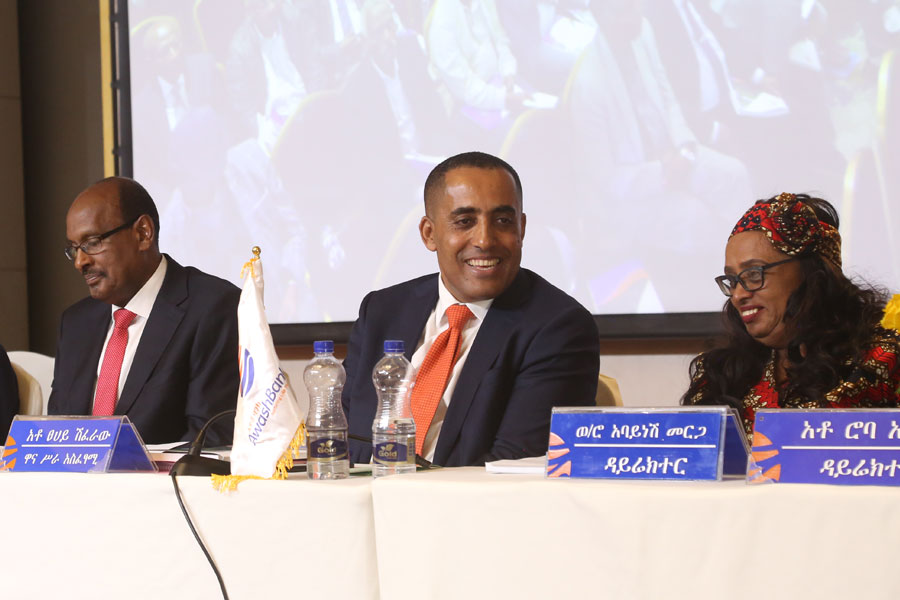
In-Picture | Aug 04,2024
Jul 17 , 2022
By Christian Tesfaye
This opinion piece may age poorly. But trying to predict the future, a favourite pastime of economists, is too fun not to engage in when we are living in the troughs of history.
The Journal of Corporate Economics recently published a paper on the relationship between budget cuts and social unrest. Using evidence from 24 European countries over a nearly nine-decade period until 2008, it found a positive correlation between “authority” and “anarchy.” Expenditure cuts, more than tax cuts, lead to protests and social unrest.
Given what transpired in Sri Lanka, an economic crisis that forced cuts to basic services, it is hard not to agree. It is common sense. When the government takes away something people used to get for free, or at a lower price, they are bound to get angry. Taken to the extreme, they could march in the streets demanding better economic conditions.
The study is timely, including for Ethiopia. The country is currently phasing out fuel subsidies, a crucial reform that is overdue. It also amounts to a budget cut, as the government eases artificially pulling down prices at the gas pump. Eventually, consumers will begin paying the full price, a painful burden for many.
Will people be angry? Will it transform into a sustained political and social movement as Ethiopians come together against the skyrocketing cost of living? Or will people be merely frustrated, and the economic conditions of the country never take on a political life?
I am of the latter view. It is unlikely to transform into any sustained socio-political unrest. The worst that will happen from the ensuing climb in the cost of living will be a few jibes on TikTok and other social media sites. There will be an indirect socio-political pressure, no doubt, but no meaningful and direct pushback to policymakers and authorities on the phasing out of fuel subsidies or even the overall rise in the cost of living.
How come this is the case? Do people not care? It is understandable that there are deeply concerning political issues leading to conflict and war, but do economic conditions not at all concern the political elite as a cause to look into?
Perhaps, it has to do with the systemic elimination of class politics in Ethiopia. There are no longer parties or political movements that care about the struggles of the working class. More specifically, there is no relevant movement that serves the class interests of the urban middle- and low-income class. This is such a departure for a country that went so much to the left in its politics beginning in the 1970s.
I concede that the matter would be much different if lifting fuel subsidies was an issue that affected rural areas. Consider, for instance, a comprehensive land reform. If it is perceived to affect settlement patterns, there will be trouble. But even here, it is not economic conditions that will inspire mobilisation and pushback but matters that have to do with history, identity and the weight communities attach to land. Few will care to delve deeper into any economic consequences, good or bad, of such a policy leap.
It is rarely a good thing that economic issues that affect people at the individual level have little political significance. Ironically, it also gives governments unprecedented leeway to carry out essential reforms that are painful in the short-term but necessary over time. It is a golden opportunity to fix major structural issues in Ethiopia's economy while the political elite could not care less about the economic circumstances of their constituencies.
PUBLISHED ON
Jul 17,2022 [ VOL
23 , NO
1159]


In-Picture | Aug 04,2024

Radar | Nov 16,2024

Fortune News | Jan 28,2023

Featured | Jun 15,2025

Radar |

News Analysis | Dec 09,2023

Fortune News | Jul 07,2024

Radar | Feb 17,2024

Agenda | Dec 08,2024

Viewpoints | Jul 13,2020

Photo Gallery | 175950 Views | May 06,2019

Photo Gallery | 166165 Views | Apr 26,2019

Photo Gallery | 156580 Views | Oct 06,2021

My Opinion | 136858 Views | Aug 14,2021

Dec 22 , 2024 . By TIZITA SHEWAFERAW
Charged with transforming colossal state-owned enterprises into modern and competitiv...

Aug 18 , 2024 . By AKSAH ITALO
Although predictable Yonas Zerihun's job in the ride-hailing service is not immune to...

Jul 28 , 2024 . By TIZITA SHEWAFERAW
Unhabitual, perhaps too many, Samuel Gebreyohannes, 38, used to occasionally enjoy a couple of beers at breakfast. However, he recently swit...

Jul 13 , 2024 . By AKSAH ITALO
Investors who rely on tractors, trucks, and field vehicles for commuting, transporting commodities, and f...

Oct 18 , 2025
The political establishment, notably the ruling party and its top brass, has become p...

Oct 11 , 2025
Ladislas Farago, a roving Associated Press (AP) correspondent, arrived in Ethiopia in...

Oct 4 , 2025
Eyob Tekalegn (PhD) had been in the Governor's chair for only weeks when, on Septembe...

Sep 27 , 2025
Four years into an experiment with “shock therapy” in education, the national moo...

Oct 18 , 2025 . By NAHOM AYELE
In a sweeping reform that upends nearly a decade of uniform health insurance contribu...

A bill that could transform the nutritional state sits in a limbo, even as the countr...

Oct 18 , 2025 . By SURAFEL MULUGETA
A long-planned directive to curb carbon emissions from fossil-fuel-powered vehicles h...

Oct 18 , 2025 . By BEZAWIT HULUAGER
Transaction advisors working with companies that hold over a quarter of a billion Bir...